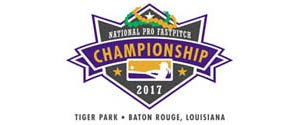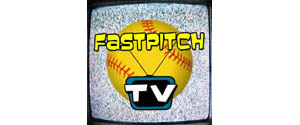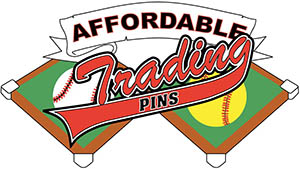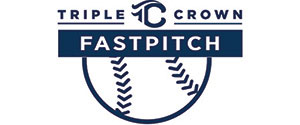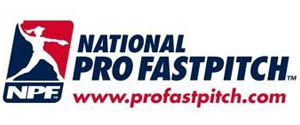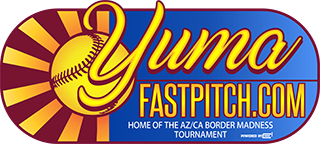My question applies to high school.
But I thought the rules to determine ERA are the same for MLB, high school, ASA, etc.
Example 1:
B1 - Out
B2 - Out
Pitching Change
B3 - Reached on Error
B4 - Home Run
Example 2:
B1 - Out
B2 - Out
B3 - Reached on Error
Pitching Change
B4 - Home Run
What is correct for the number of earned runs for the relief pitcher in Example 1 and Example 2?
Example 1: Relief Pitcher - 0 earned runs since B3 should have been the 3rd out of the inning.
Example 2: Relief Pitcher - 1 earned run for B4 since the error occured before she entered the game.
I have seen Example 1 scored as 1 earned run in several examples on the internet.
I guess this is based on the statement:
"A relief pitcher does not receive benefit of previous chances for outs when
reconstructing the inning in determining earned or unearned runs she put on, while
the original pitcher does."
I always assumed that meant previous chances for outs that occured before she entered the game.
Can someone give a reference to an official rule intepretation that clarifies this point either way?
The Umpire Corner
I would have the following:
Example 1: 1 earned run charged to the RP per the logic you quote below which is in the ATEC scoring manual. She does not get credit for previous outs, so while the runner is on due to an error (and thus is an unearned run when she scores), the HR is earned.
Example 2: Also 1 earned run charged to the RP (not responsible for the runner already on) and 1 unearned run tallied to the OP
Example 1: 1 earned run charged to the RP per the logic you quote below which is in the ATEC scoring manual. She does not get credit for previous outs, so while the runner is on due to an error (and thus is an unearned run when she scores), the HR is earned.
Example 2: Also 1 earned run charged to the RP (not responsible for the runner already on) and 1 unearned run tallied to the OP
- hit4power
- Premium Member

- Posts: 682
- Joined: Fri Jun 27, 2008 7:09 am
I found a comment in the MLB rules, clarifing the example (don't know why I couldn't find that at first):
http://mlb.mlb.com/mlb/official_info/official_rules/official_scorer_10.jsp
Rule 10.16
(i) When pitchers are changed during an inning, the relief pitcher shall not have the benefit of previous chances for outs not accepted in determining earned runs.
Rule 10.16(i) Comment: It is the intent of Rule 10.16(i) to charge a relief pitcher with earned runs for which such relief pitcher is solely responsible. In some instances, runs charged as earned against the relief pitcher can be charged as unearned against the team. For example:
(1) With two out and Peter pitching, Abel reaches first base on a base on balls. Baker reaches first base on an error. Roger relieves Peter. Charlie hits a home run, scoring three runs. The official scorer shall charge two unearned runs to Peter, one earned run to Roger and three unearned runs to the team (because the inning should have ended with the third out when Baker batted and an error was committed).
(2) With two out, and Peter pitching, Abel and Baker each reach first base on a base on balls. Roger relieves Peter. Charlie reaches first base on an error. Daniel hits a home run, scoring four runs. The official scorer shall charge two unearned runs to Peter and two unearned runs to Roger (because the inning should have ended with the third out when Charlie batted and an error was committed).
(3) With none out and Peter pitching, Abel reaches first base on a base on balls. Baker reaches first base on an error. Roger relieves Peter. Charlie hits a home run, scoring three runs. Daniel and Edward strike out. Frank reaches first base on an error. George hits a home run, scoring two runs. The official scorer shall charge two runs, one of them earned, to Peter, three runs, one of them earned, to Roger and five runs, two of them earned, to the team (because only Abel and Charlie would have scored in an inning reconstructed without the errors).
So I think in my Example 1 the Relief Pitcher would not be charged with an Earned Run for B4 since the error on B3 should have been the 3rd out.
http://mlb.mlb.com/mlb/official_info/official_rules/official_scorer_10.jsp
Rule 10.16
(i) When pitchers are changed during an inning, the relief pitcher shall not have the benefit of previous chances for outs not accepted in determining earned runs.
Rule 10.16(i) Comment: It is the intent of Rule 10.16(i) to charge a relief pitcher with earned runs for which such relief pitcher is solely responsible. In some instances, runs charged as earned against the relief pitcher can be charged as unearned against the team. For example:
(1) With two out and Peter pitching, Abel reaches first base on a base on balls. Baker reaches first base on an error. Roger relieves Peter. Charlie hits a home run, scoring three runs. The official scorer shall charge two unearned runs to Peter, one earned run to Roger and three unearned runs to the team (because the inning should have ended with the third out when Baker batted and an error was committed).
(2) With two out, and Peter pitching, Abel and Baker each reach first base on a base on balls. Roger relieves Peter. Charlie reaches first base on an error. Daniel hits a home run, scoring four runs. The official scorer shall charge two unearned runs to Peter and two unearned runs to Roger (because the inning should have ended with the third out when Charlie batted and an error was committed).
(3) With none out and Peter pitching, Abel reaches first base on a base on balls. Baker reaches first base on an error. Roger relieves Peter. Charlie hits a home run, scoring three runs. Daniel and Edward strike out. Frank reaches first base on an error. George hits a home run, scoring two runs. The official scorer shall charge two runs, one of them earned, to Peter, three runs, one of them earned, to Roger and five runs, two of them earned, to the team (because only Abel and Charlie would have scored in an inning reconstructed without the errors).
So I think in my Example 1 the Relief Pitcher would not be charged with an Earned Run for B4 since the error on B3 should have been the 3rd out.
- Make_It_Happen
- Posts: 22
- Joined: Wed Aug 06, 2008 10:49 am
Well, just to muddy the waters, I've excerpted the NCAA scoring manual (pg 6 Sec 22):
I would argue that in your example 1, part f above is applicable and the RP would get charged with an earned run
No earned run shall be charged to a relief pitcher if the runner was on base when the
relief pitcher entered the game. Likewise, if a batter has more balls than strikes, unless
the count is one ball, no strikes, when a relief pitcher enters the game and the batter
receives a base on balls, charge that action to the preceding pitcher. Any other action of
the batter shall be charged to the relief pitcher.
c. No run shall be earned when scored by a runner whose time as a runner is prolonged
by an error, if such runner would have been put out by errorless play.
d. An error by a pitcher is treated exactly the same as an error by any other fielder in computing
earned runs.
e. When pitchers are changed during an inning, the relief pitcher shall not be charged with
any run (earned or unearned) scored by a runner who reaches base on a fielder’s choice
that puts out a runner left on base by a preceding pitcher.
Note—The intent of this rule is to charge each pitcher with the number of runners he put on base, rather than
with the individual runners.
f. When pitchers are changed during an inning, a relief pitcher shall not have the benefit
of errors made earlier in the inning. Thus, he will be charged with earned runs for which
he is totally responsible.
I would argue that in your example 1, part f above is applicable and the RP would get charged with an earned run
- hit4power
- Premium Member

- Posts: 682
- Joined: Fri Jun 27, 2008 7:09 am
I agree that is the intepretation that could be made based on the "previous" and "earlier" wording in the rules and examples. That is why it can be debated. Other rules (not MLB) do not include the specific examples to clarify the intepretation to be applied when the error occurs after the relief pitcher enters the game.
But the example now included in the MLB rule clarifies that "previous" means before the relief pitcher entered the game.
That would also be in the spirit of the determining earned runs.
The RP comes into the game with 2 outs and gets a ground ball that should be the 3rd out.
The RP should not be charged with further earned runs.
If the error was made "earlier" (ie before the relief pitcher entered the game), then she does not have the benefit of the errors made earlier. The earned runs for the relief pitcher are determined based on the number of outs in the inning when she enters the game.
But the example now included in the MLB rule clarifies that "previous" means before the relief pitcher entered the game.
That would also be in the spirit of the determining earned runs.
The RP comes into the game with 2 outs and gets a ground ball that should be the 3rd out.
The RP should not be charged with further earned runs.
If the error was made "earlier" (ie before the relief pitcher entered the game), then she does not have the benefit of the errors made earlier. The earned runs for the relief pitcher are determined based on the number of outs in the inning when she enters the game.
- Make_It_Happen
- Posts: 22
- Joined: Wed Aug 06, 2008 10:49 am
If the error was made "earlier" (ie before the relief pitcher entered the game), then she does not have the benefit of the errors made earlier. The earned runs for the relief pitcher are determined based on the number of outs in the inning when she enters the game.
No question that MLB is pretty clear, but NCAA wording is enough different and vague that, as you point out, different interpretations are possible.
For me, I think the use of the word "earlier" vs. "prior to the entry of the RP" allows a wider interpretation, to wit, earlier implies nothing more than before the run in question scores. In other words, earlier doesn't have to mean before the RP enters, it just means (in the examples we are debating) before the HR is hit. So whether the error occured before or after the RP enters, she gets charged for an earned run in the situations you outlined. In both cases, the error occurred "earlier" (before the HR) and she gets no benefit from it.
I admit that seems a bit unfair, b/c if the OP stayed in, and the same sequence of events occurred, the HR would not result in any earned runs, so why should the RP get tagged with an ER? But that's not the only aspect of scoring that can lead to results that seem unfair...
- hit4power
- Premium Member

- Posts: 682
- Joined: Fri Jun 27, 2008 7:09 am
6 posts
• Page 1 of 1



